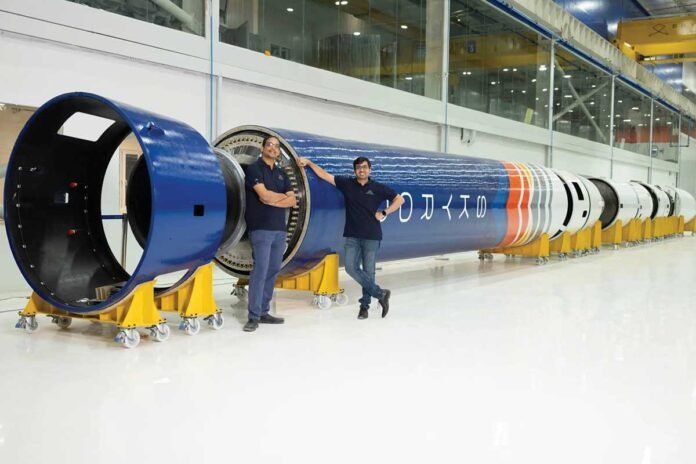In a historic moment for India’s space industry, Dr. Jitendra Singh, the Union Minister of Science and Technology, introduced Skyroot’s Vikram-1 orbital rocket in Hyderabad on October 24th. Skyroot’s co-founder and CEO, Pawan Kumar Chandana, hopes to achieve a full commercial launch of Vikram-1 by 2024, marking a significant step forward for India’s space ambitions.
Meet Vikram-1: A Marvel of Technology
Vikram-1 is a highly advanced rocket designed for multiple-stage launches. It can carry payloads weighing around 300 kg into Low Earth Orbit. This rocket is special because it has a body made of lightweight carbon fiber and features liquid engines made using 3D printing technology.
Boosting India’s Satellite Deployment
Vikram-1 is unique because it can carry more than one satellite into space, a first not only for India but also globally. This rocket is like an upgraded version of Skyroot’s previous success, the Vikram-S rocket, which launched on November 18th, 2022.
When to Expect the Launch?
While the exact launch month hasn’t been revealed, Vikram-1 is set for a full-scale developmental test launch in early 2024. The complete commercial launch is expected later in the same year. This timeline is vital as more players worldwide are entering the satellite launch business, making the competition fierce.
Funding for Success
Skyroot has secured approximately Rs 526 crore in funding, which will support the company for several launches. This includes a significant amount of Rs 400 crore secured just a year ago. This financial stability is crucial for Skyroot to continue its ambitious space launch projects as a leading private space launch provider.
Bright Future for India’s Space Industry
Dr. Jitendra Singh is optimistic about India’s space economy. Estimates suggest the industry, currently valued at $8 million, could grow to $40 million by 2040, with some even projecting it might reach $100 million. This expected growth highlights the importance of India’s contributions to space technology and commercial space ventures.
MAX-Q Headquarters: A Space Odyssey
Dr. Singh also inaugurated Skyroot Aerospace’s new global headquarters, named MAX-Q, in Hyderabad. It’s the largest private rocket development facility under one roof in India. Covering 60,000 square feet, this facility houses Skyroot’s 300-member workforce, with plans for future expansion. The MAX-Q headquarters, with its futuristic space theme, symbolises Skyroot’s commitment to pushing the boundaries of space technology.





